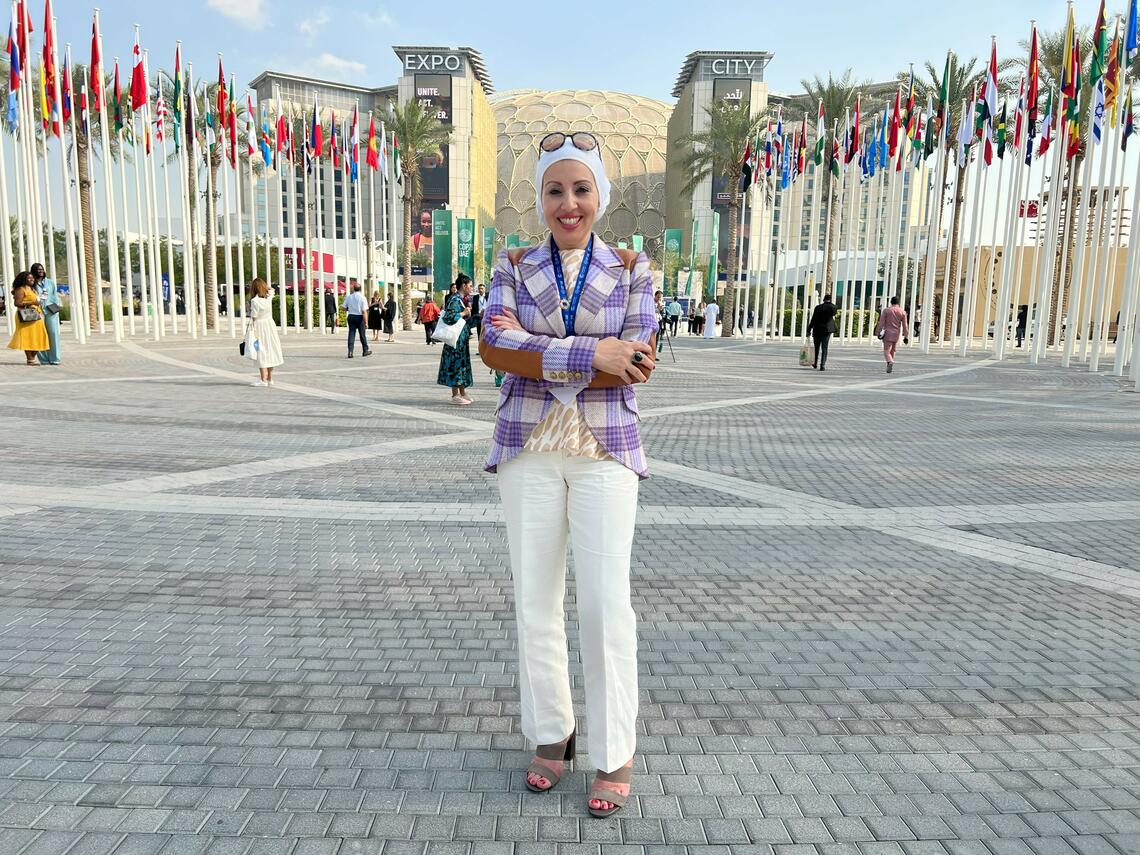Alumni spotlight
Proudly sponsored by TD Insurance


Ghada Nafie, PhD'20 (Chemical Engineering)
Using nanoparticles to extract lithium from salt water
Instructor in entrepreneurship co-founds company that will help speed energy transition
Ghada Nafie, PhD, teaches students about engineering entrepreneurship while practicing what she preaches as CEO and co-founder of Litus, a company that’s commercializing nanomaterials to extract lithium from briny water.
Currently, the metal is either mined from hard rock sources or extracted during a months or years’ long evaporation process. But Litus’ patented nanotechnology is seeing “unmatched success” extracting lithium from lower concentrations of salt water. It’s a “ground-breaking solution” that will help speed the world’s transition from fossil fuels to renewable sources of energy. “Lithium is the cornerstone of battery technology and really the answer to energy transition,” says Nafie, an instructor at Schulich School of Engineering.
The entire world is in a race to secure access to lithium. The demand is growing. It's a crucial component of electric vehicle batteries, and the automobile industry has set such high targets that they require a lot more lithium to be produced.
Ghada Nafie, PhD'20 (Chemical Engineering)
A chemical engineer, Nafie completed her undergraduate engineering degree, Master of engineering and PhD at Schulich, working in water treatment in the oil and gas industry before coming back to pursue her doctorate. It was a “natural transition” to move from working in wastewater and sustainability at energy facilities to using nanomaterials to extract lithium, she says.
The Litus nanotechnology was developed in a lab at Schulich with Nafie’s co-founders, Pedro Pereira-Almao, PhD, professor, Department of Chemical and Petroleum Engineering at Schulich and research chemist Gerardo Vitale, PhD. “Our biggest vision is to create customers and partners with abundant, accessible, cleaner, safer, and more efficient energy solutions,” says Nafie.
In late 2023, Nafie and her colleagues attended COP28 speaking on panels and fielding a lot of questions from people interested in learning more. “It was really exciting to have a voice at that international stage and to share what we're doing, talk to people and connect with people from all over the world,” she says. “We developed really great connections and relationships.”
Throughout her career as an engineer, educator and entrepreneur, Nafie’s been impressed with the amenities, technical staff and support available to students at Schulich. “As a faculty, they're not afraid to implement new things. The support that they offer to students—undergrad, grad, and even postdocs—is tremendous with the facilities that they build, the knowledge that is being developed and the expertise. We're so lucky to have that all offered to us in one place.”
She’s grateful for mentorship from colleagues and peers over the years, recognition through awards such as the Triple E Peoples’ Choice award and “some of the best facilities ever” at Schulich. “We really have great research initiatives, great labs,” she says. “I can't think of another place that has a pilot plant at their university. We were able to work initially in a lab and then go down to the pilot plant that we have at the CCIT building (Calgary Centre for Innovative Technology) and actually build it in larger scale and test it.”
“We've really gone from lab to bench and from bench to pilot,” she says. “Now, with our patented technology, we're trying to unlock new sources of lithium that are available right here in North America, and Europe.”
